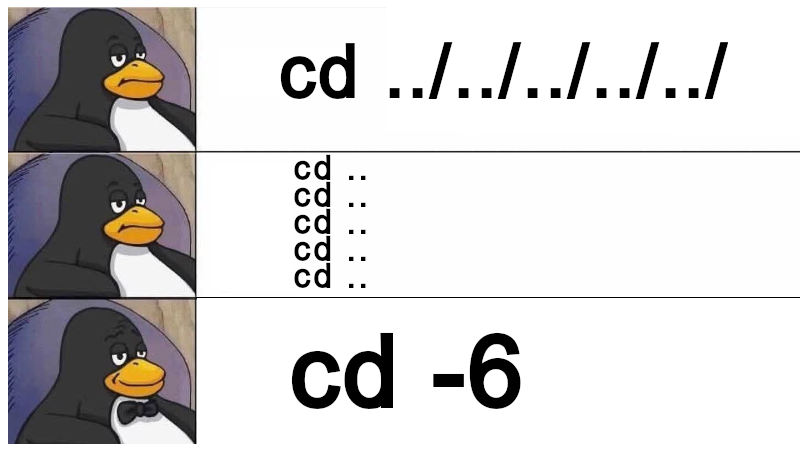Sed is a non-interactive text editor. It comes from English [S]tream [ED]itor, ie text flow editor. GNU Sed is currently used by most Linux distributions and has the most new features: GNU/Linux.
It’s case sensitive
-ichange the file-eprint to screen without changing file-nsuppress, show only command outputsreplaces one piece of text with another!inverts the logic of the command;command separator|string separatordat the end deletepat the end printsgat the end (as d and p is used) changes all occurrencesqquit sed, does not continue command
Complete list of GNU sed character classes
[[: alnum:]]Alphabetic and Numeric [a-z A-Z 0-9][[: alpha:]]Alphabetic [a-z A-Z][[: blank:]]Blank character, space, or tab [\ t][[: cntrl:]]Control characters [\ x00- \ x1F \ x7F][[: digit:]]Numbers [0-9][[: graph:]]Any visible character (i.e. except blank) [\ x20- \ x7E][[: lower:]]Lowercase letters [a-z][[: upper:]]Capital letters [A-Z][[: print:]]Visible characters (ie except control characters) [\ x20- \ x7E][[: punct:]]Score [-! ”# $% & ‘() * +,. /:;? @ [] _` {} ~].[[: space:]]White space [\ t \ r \ n \ v \ f][[: xdigit:]]Hexadecimal Number [0-9 a-f A-F]
1 - Swap all words in one file for another
sed -i 's/word/other/' file.txt2 - Prints only the ninth line
sed -n '9p' file.txt3 - Prints from the sixth line to the ninth line
sed -n '6.9p' file.txt4 - Delete all lines containing the word string in the file.
sed -i '/dmx/d' file.txt5 - Put one word at the beginning of each line.
sed 's/^/word/' file.txt
6 - Put a word at the end of each line.
sed 's/$/word/' file.txt7 - Prints only lines that START with the string ‘http’
sed -n '/^http/p' file.txt8 - Deletes only lines that START with the string ‘http’
sed -n '/^http/d' file.txt9 - Exchange ALL occurrences of the word “marcos”, “eric”, “camila” with the word “penguin”
sed 's/marcos\|eric\|camila/penguin/g' file.txt
10 - Exchange everything between the words “Marcos” and “Eric” for the word “they”, for example, the text is:
“On Saturday Marcos went out to bike with Eric, but they didn’t stay up late.” And it will look like this: “On Saturday they didn’t stay up late.”
sed's/Marcos.*Eric/they/' file.txt11 - Delete blank line and change file
sed -i '/^$/d' file.txt12 - Replaces “foo” with “bar” only lines containing “plop”
sed '/plop/s/foo/bar/g' file.txt13 - Replaces “foo” with “bar” except lines containing “plop”
sed '/plop/!s/foo/bar/g 'file.txt14 - Insert Line 2 with line 7 the “#” at the beginning of each line
sed '2,7s/^/#/' file.txt
15 - Inserts the word ‘NEW’ at the beginning of each line from line 21 to line 28
sed -i '21,28s/^/NEW/' file.txt16 - Swap everything between the tags “<” and “>” for the word “CODE”:
sed 's/<[^>]*>/CODE/g' file.txt17 - Prints only first occurrence of line with given string
sed -n '/day/{p;q;}' file.txt
18 - Include text at end of line 9
sed '9s/$/end of line/' file.txt19 - Put all lines into one
sed ':a;$!N;s/\n//;ta;' file.txt20 - Replaces the word “BEAUTY” with “YES” only between certain lines.
sed '3,6s/BEAUTY/YES/' file.txt21 - Deletes what is between the word “spoke” and “second” (delimiters)
sed '/second/{/spoke/{s/second.*spoke//;t};:a;/spoke/!{N;s/\n//;ta;};s/second.*spoke/\n/;}' file.txt
22 - Removes HTML commands
sed 's/<[^>]*>//g' file.txt23 - Deletes the 1st character of the sentence.
sed 's/.//' file.txt24 - Deletes the 4th character of the sentence.
sed 's/.//4' file.txt25 - Deletes the first 4 characters
sed 's/.\{4\}//' file.txt
26 - Deletes at least 4 characters
sed 's/.\{4,\}//' file.txt27 - Deletes 2 to 4 characters
sed 's/.\{2,4\}//' file.txt28 - Range Examples
echo "aáeéiíoóuú" | sed "s/[a-u]//g"
áéíóúecho "aáeéiíoóuú" | sed "s/[á-ú]//g"
aeiou29 - Transforms text (URL) into HTML link tags.
It was: http://www.com
It is: <a href="http://www.com">http://www.com</a>
sed 's_\<\(ht\|f\)tp://[^ ]*_<a href="&">&</a>_' file.txt30 - Regular Expressions with SED (sed regex)
This sed reads data from file.txt and erases (command d) from the first line to the line containing 3 numbers in a row, throwing the result on the screen. If you want to save the result, redirect it to another file, not the file.txt itself.
sed '1,/[0-9]\{3\}/d' file.txtDelete numbers
s/[0-9]\+//g' file.txtPrints only lines containing SCORE
sed -n '/[[:punct:]]/p' file.txtPrint only lines beginning with Numbers
sed -n '/^[[:digit:]]/p' file.txtFormatting Phone Number
We have a file with the phone numbers like this:
7184325689
4333285236
1140014004
3633554488Running some of these command modes in SED:
- Neanderthal Mode
Replaces 2 characters “..” with “&” which is the output of the request. Performs another sed to replace 8 characters again with “&” Note: You must always escape the parentheses “(“ and “)”
sed 's/../\(&\)/' file.txt | sed 's/......../&-/' file.txt- Medieval mode
Same as above, just put the “{8}” to mark 8 characters “.” Also, ALWAYS need to escape the “{“ and “}” keys
sed 's/../\(&\)/' file.txt | sed 's/.\{8\}/&-/' file.txt- Modern mode
Instead of throwing the exit, I separated the command with a semicolon “;” and launched another sed “s”
sed 's/../\(&\)/;s/.\{8\}/&-/' arquivo.txt- Postmodern mode
This mode is to understand the following
The first command in parentheses “(..)” Then separated by slash
I threw or command in parentheses “\ (.{4 } )” The first command output goes to bar 1 “\1” And the second command for slash 2 “\2” It could also have bar 3, n,…
sed 's/\(..\)\(.\{4\}\)/(\1)\2-/g' arquivo.txtStays like this:
(71) 8432-5689
(43) 3328-5236
(11) 4001-4004
(36) 3355-4488Thanks for read.




